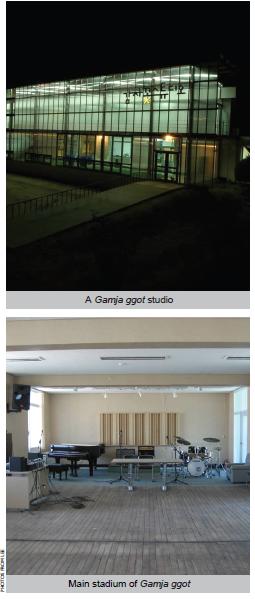The Division of Culture and Tourism studies in Sookmyung Women’s University (SMU), has already become a famous division of SMU. Lee Sun-chul (LEE), one of the most well-known experts in the culture industry in Korea, has strong relation to SMU as a professor of the Division of Culture and Tourism studies. ‘Culture’ is always seemed to be wonderful and beautiful, but there are big and weighty responsibilities to a person engaged in culture business. LEE allowed The Sookmyung Times (SMT) to interview him and discuss what his work means.

SMT What makes you want to work at Performance producing field?
LEE I have loved performance and I wanted to be a musician, so I started to prepare to enter the college of music in university. I was always impressed with performance which produces a performance by me in backstage. There was no special moment and reason which brought me up to change my interests. Actually, a Culture related department didn’t exist at any university in the whole country. I just sudied about the liberal arts in school but not about studies connected to culture. Therefore, I encountered culture and performance producing on the spot. My field is not only based on reading books and writing papers in my office, but also on undergoing and studying hands-on. That’s why I experienced and perceived things in person
SMT What attracts you to 'culture?'
LEE Culture, perhaps, is inclusive, concrete, and realistic in itself. However, culture is an amorphous idea before makers show it to the market. The idea, which could be thought of as ‘inspiration,’ is changed into a reality. For example, things such as paintings are displayed on a gallery and art fair. I dare to say it is the greatest charm of culture.
SMT What’s the role of a culture and performance producer?
LEE Shortly, I believe that culture makers play a basic and significant role in mediating between customers (audiences) and artists. But that’s not all, we help artists realize their works and make them valuable. We seem to infuse new life into art, because works like movies, books, and concerts could just stay at “idea,” if we didn’t bring them out to the world. Also, producers create a market and expedite products to be applied to people’s life. By extension, we also invigorate the economy of the local place. For my personal example, I’m running a studio called Gamja ggot, and there are no accommodations for tourists. It’s for local residents who own their own pension and small housing. Also, there are festival producers who operate successful local festivals to earn large amounts of money for the local government.

SMT Why did you open Gamja ggot studio as culture-sharing place?
LEE No special reason. I like nature from before and wanted to experience it nearby. Just at that time, my body was ill. Suddenly I thought that I can try to do other kinds of work if I harmonize my 20-year-old experiences in culture, my recent condition, and my favorite code ‘nature’. Now, I just enjoy working and living there. And, I often use my studio as a place for students and neighbors in need of advanced contact with me. There is no bad meaning to attract foreign tourists and some special people for money. I make programs in advance by my efforts and eat barbecue with students and other visitors.
SMT What is the most difficult problem in working at your field?
LEE No special difficulties are breathing in my field, just like the same with others. However, culture is invisible as we know; I thought money, fame, or power given as benefits of one’s whole life are socially inferior to a person having a culture-related job. For example, no money would be earned even if I did my best. Therefore, I believe that people engaging in the culture field exert themselves to the utmost to find out what they should do, what they want to be like, a vision, and what they want to achieve.
SMT Say some advice to Sookmyungians.
LEE I largely think culture is essential to every part of life: lifestyle, tradition, custom, and thinking. I don’t believe that every Sookmyungian who graduated from the Division of Culture and Tourism studies should be occupied with performance producers, curators, and culture-related works. I want undergraduates to spread out into many different fields and apply cultural contents to the society. Culture could bring about creativity, flexibility to think and improvement of standards of life. And SMU is the only the university which teaches undergraduate students about culture. It is the strongest advantage of Sookmyungians in the Division of Culture and Tourism Studies, if you make the most of your opportunity and use it properly.


